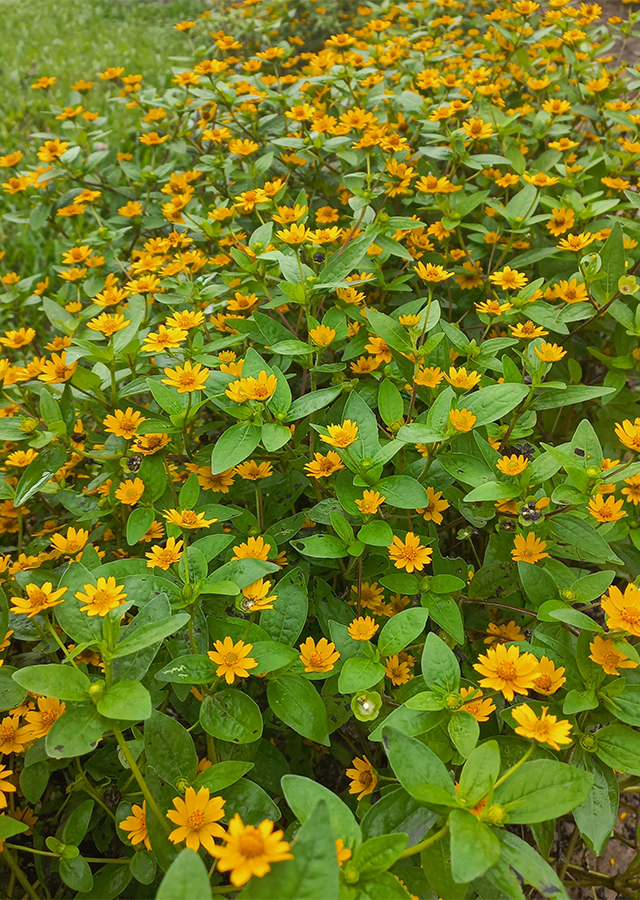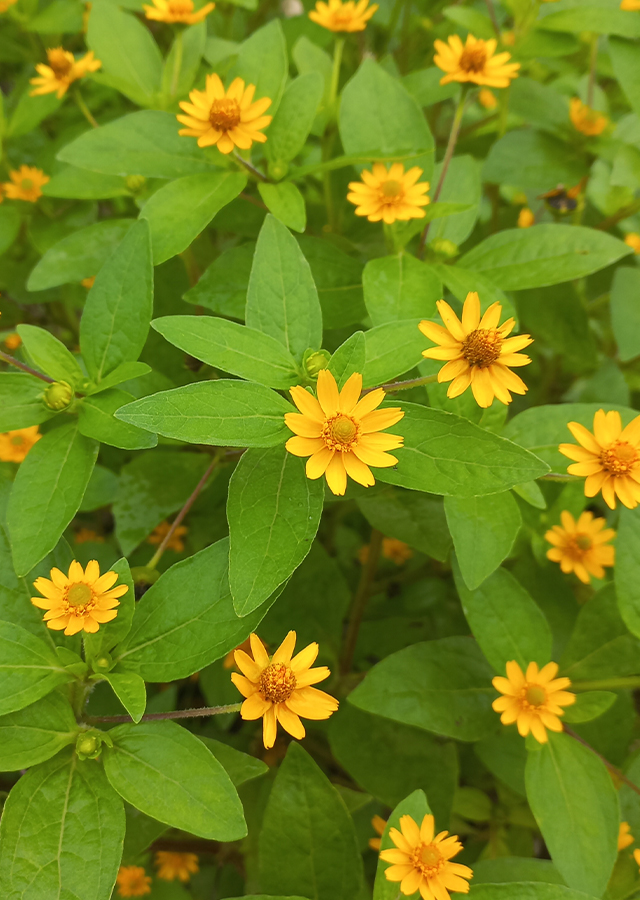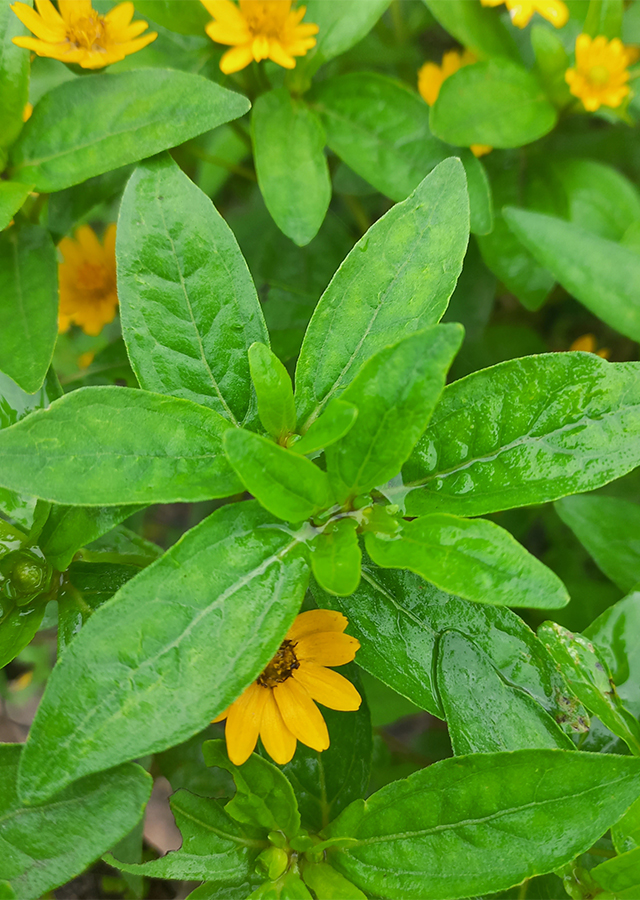Traditional Herbs from Melampodium divaricatum
wound
- Prepare enough small sunflower leaves and wash them until clean.
- Crush them into a paste.
- Apply the leaf paste on the wound.
fever
- Take 7 sunflower buds and enough starfruit leaves, wash them until clean.
- Blend the two ingredients.
- Squeeze them and then take the essence.
- Drink.
What is Melampodium divaricatum Looks like??



Parts of Melampodium divaricatum that could be used
- Leaves
- All Parts of the Plant
Melampodium divaricatum Distribution
Small sunflowers come from Mexico, Central America, North-South America, the Caribbean, Brazil, Burma (Myanmar), Cuba, the Philippines. Information obtained from the field shows that Indonesian people use this plant to treat wounds. The process of making medicine is done by crushing or pounding enough leaves and then applying them to the injured part of the body. The leaves are used in Guatemala to treat malaria and stomach aches, and the whole plant is used against influenza. In Mexico embolism is treated with an infusion of the whole plant used as a wound remedy, as an antidysentery, and an anticonvulsant. This plant is also used as an ornamental plant in the garden or in a potAgroecology of Melampodium divaricatum
Easy to grow in all types of soil, prefers loamy soil, evenly moist, well-drained, in full sun. Requires consistent moisture, but prefers dry patches of soil. The plant is quite tolerant of hot, humid summer weather, but the taller stems tend to flop over in summer.
Morphology of Melampodium divaricatum
�
Cultivation of Melampodium divaricatum
Can be easily propagated from seeds which can be harvested in large quantities. Or better yet, sow them first so they thrive in optimal growing conditions, then plant the seeds wherever we want.
Melampodium divaricatum, more details :
Chemical Content of Melampodium divaricatum(E)-Caryophyllene, germacrene D, and Bicyclogermacrene.
Benefits of Melampodium divaricatum
Heals wounds, fever, malaria, flatulence, stomach ache, colic, joint pain, muscle pain, palpitations, vertigo, rheumatism, jaundice, anuria. Has diuretic and carminative properties.
Simplisia of Melampodium divaricatum
Another Facts for Melampodium divaricatum :
Synonym of Melampodium divaricatumDysodium divaricatum Rich., Alcina minor Cass., Alcina ovatifolia J.Jacq.
Habitus of Melampodium divaricatum
Herb. Annual herb reaches 120 cm high
Habitat of Melampodium divaricatum
- Forest
- Land
No comments:
Post a Comment